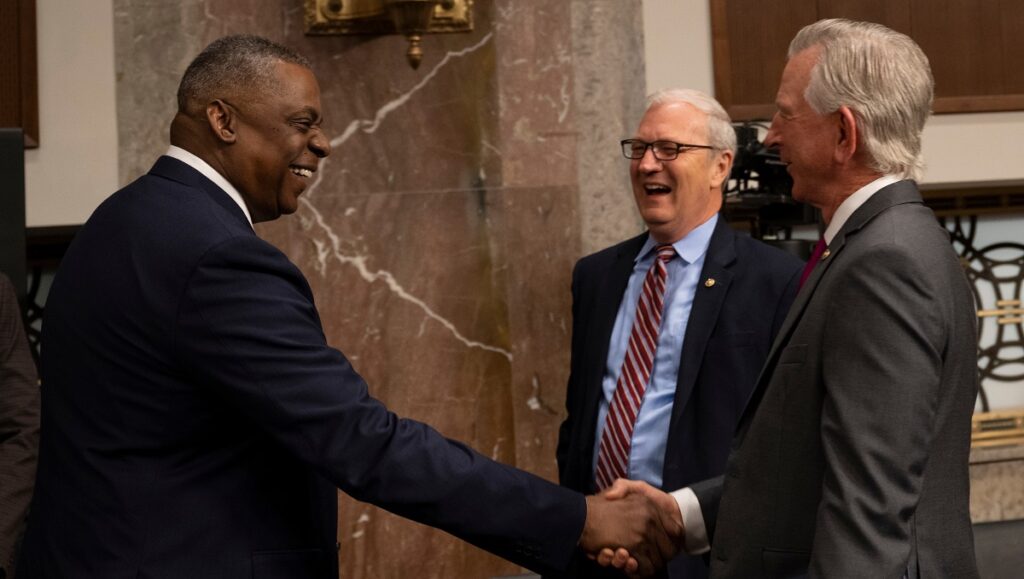It’s not odd for discussions about civil-military relations to focus on the civilian control exercised by the President of the United States (POTUS). Obviously, in his role as Commander-in-Chief, POTUS sits atop the military chain of command. But a complete discussion has to also consider the military’s relationship with Congress. Members of the House and Senate provide oversight for activities and programs, authorizations and appropriations for the finance of the military, as well as confirmations for the most senior officer promotions. Katherine Kuzminski is in the studio along with guest host Carrie Lee to discuss how the relationship between Congress and the military has changed over time, for better and worse. Katherine brings several decades of experience as an Army spouse as well as her research specializing in Department of Defense institutional and organizational design and management; military recruitment, retention, and talent management policy; veteran and military family issues; and civil-military relations. This is the third episode in a multi-part special series supporting the U.S. Army War College’s Civil-Military Relations Center.
The NDAA [National Defense Authorization Act] provides a lot of levers for changing policy and culture in the services in an indirect way…And so it’s interesting to see how Congress can use the authorization act to enable some cultural change within the services should the services want to take them up on that offer.
Podcast: Download
Subscribe: Apple Podcasts | Spotify | Amazon Music | Android | Pandora | iHeartRadio | Blubrry | Podchaser | Podcast Index | TuneIn | Deezer | Youtube Music | RSS | Subscribe to A Better Peace: The War Room Podcast
Katherine Kuzminski is the Deputy Director of Studies and Program Director, Military, Veterans, and Society Program at Center for a New American Security (CNAS). Her research specializations include Department of Defense institutional and organizational design and management; military recruitment, retention, and talent management policy; veteran and military family issues; and civil-military relations.
Carrie A. Lee is an associate professor at the U.S. Army War College, where she serves as the chair of the Department of National Security and Strategy and director of the USAWC Center on Civil-Military Relations. She received her Ph.D. in political science from Stanford University and a B.S. from MIT.
The views expressed in this presentation are those of the speakers and do not necessarily reflect those of the U.S. Army War College, U.S. Army, or Department of Defense.
Photo Description: Secretary of Defense Lloyd J. Austin III greets Senators Tommy Tuberville and Kevin Cramer before a Senate Armed Services Committee hearing on the Defense Department’s fiscal year 2023 budget request, Washington, D.C., April 7, 2022.
Photo Credit: DoD photo by Lisa Ferdinando

